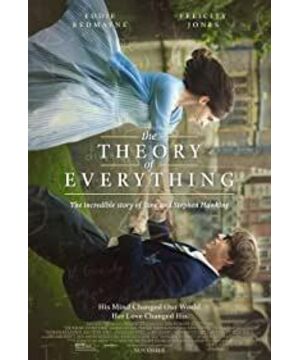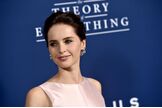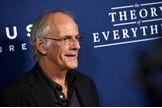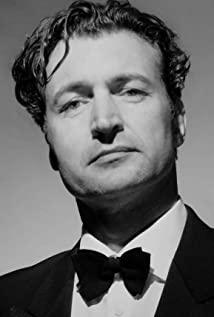biopic films has been a hit at the Oscars. This year there's The Theory of Everything, The Imitation Game and Selma, a pure biopic that has been nominated for Best Picture in the last five years, and 10 years of King's Speech, 11 years of The Artist, 12 years of Lincoln, 13 years of 12 Years a Slave . In fact, this is not difficult to understand. Biographical films usually contain a great life path, the ultimate spirit of resistance, and perseverance. This kind of shining humanity is naturally admired by Oscar. It is worth mentioning that, on the one hand, the core of today's biographical films is more and more diversified, and the vision is not limited to the great man, the AIDS patient who resisted the government (Dallas Buyers Club), the founder of Facebook (social network), etc., let us feel To the increasingly rich definition of so-called "greatness"; on the other hand, movies like Capote's Moment, what interprets are not greatness, but other aspects of human nature, which also give us new perspectives .
Back to the theory of everything. In fact, The Theory of Everything is really a super-typical "Oscar movie", and the fact is that the taste of Oscar has gradually been unable to keep up with the more and more cutting-edge movie expression and the more and more diversified viewing experience to some extent. The short comment I gave after reading The Theory of Everything was "Three no products with no attitude, no taste, no three-dimensionality. A description of Hawking's great stoic women's love, nobility, positive energy, seriousness, plain, down-to-earth, steady, and inspiring. The main theme movie of the biography of love." I took this opportunity to fully interpret what I meant.
1. No taste
Taste can’t be said, but everyone understands it. In fact, this is the ultimate requirement for a movie, not to mention the strong personal flavor that is permeated in every movie by such film masters as Wong Kar Wai, Lou Ye, Quentin Ang, and the most recent ones. Two big hits, Birdman and The Grand Budapest Hotel, are also the ultimate in personalized movies in recent years. Not to mention this kind of movie with personality flavor, take the imitation game as an example, the personalized performance can't be talked about, but it at least made me feel the dark and depressing atmosphere shrouded in the whole film. So about the taste, I put forward the above three standards, but unfortunately our Theory of Everything has no taste at all in my impression, and it has not even been able to create a certain atmosphere. The whole film in my impression is the lawn in the sun, Cambridge in the sun, and home in the sun.
Second, not three-dimensional
"Three-dimensional" is extremely important for the shaping of a character, and biographical films are completely revolving around characters. But Hawking in The Theory of Everything can be said to be a super-typical flat character. What is a three-dimensional person in my eyes? In the first category, the characters are entrapped by the times, unable to escape, and facing the misery of macro-repression, the pattern is grand. For example, Xiao Hong in the golden age and Pu Yi in the last emperor. In the second category, great people also have their own unknown predicaments and hidden pains, such as Mrs. Thatcher's struggle with dementia in the later period of the Iron Lady, or the old man's food in the god of sushi reached its peak, and the two sons The relationship is delicate. The third category is to show the dark side of the characters. The characters end up tragically in the contest with themselves and morality and loneliness, such as the cold-blooded gay writer in Capote, and the writer Wool, who has always been suicidal. husband. Another example is to add some details to the characters, some special habits, and some interesting relationships. In short, it is to let the viewers feel his greatness and at the same time remember that he is a real person, who has seven emotions and six desires and is complete. He represents the concept of "person", not the concept of "virtue".
But Hawking in The Theory of Everything is a little too glamorous. The perfect scholar, the perfect husband, the perfect father. What makes me very dissatisfied is the handling of one of the episodes, that is, Hawking broke up with his wife who has been with him all the time, divorced, and married another woman. I think this was supposed to be a very important thing to plump up the other side of Hawking, but the movie turned into Hawking and his wife saying "I'm leaving you" and then hugging each other and crying. Does the divorce of the great man have to be shaped as a "great divorce"? Not to mention the real indiscretion of Hawking's private life, whether he is derailed or not, even the two people are portrayed as touching, which really makes me feel a little too much. This is just one of my most disgusting points, but it can already be seen from the "one-sided" situation of Hawking's image created by the movie. This is not the story of Hawking, this is the story of the perfect scientist, Li Si, Tom or Yuan Longping can be called.
3. No attitude
A movie can have no flavor or three-dimensionality, but I personally think that without attitude, it really has no core. What is your conclusion when you finish the film? The title of the film, the theory of everything, itself is empty and contrived. The director's portrayal of Hawking is extremely flat and extremely flattering. If the conclusion is Hawking's great personality, but several important nodes, such as the process of Hawking's paralysis, the process of Hawking's fame, and the process of Hawking's divorce, I did not feel the expected greatness. The lady's role in the film even has seven points. If the conclusion is that love is selfless and beautiful, the heroine's performance is still full, but she has to cover up cheating, marriage failure and so on through blunt handling. So on the one hand, the director wanted to show a positive and inspiring emotion and attitude, but on the other hand, this attitude was untenable and could not impress me. Not to mention the depth of this attitude.
Fourth, the battle for the best actor The paralysis of the
Oscar actor has become a laughing stock. In addition to this year's little freckles (the paralyzed Hawking) and Aunt Mo (dementia), last year's actor Matthew (AIDS), the queen Kate (depression) and Colin Firth (the stuttering king), the big cousin (mania) ) Aunt May (Demented Iron Lady) Natalie (Crazy Black Swan), I can't help but be surprised when I think about it, I can't win awards if I don't play the patient! I admit that it was really difficult for Little Freckles to challenge Hawking (after being paralyzed, he can only act with his eyes), and his performance is really good, but I can only say that he did not impress me very well in some emotional scenes. It seems to be a poor paralyzed man, but not necessarily Hawking. In a sense, the image of Hawking he left for me is the same as the main theme of this movie.
My support is Michael Keaton of Birdman. His characters are more complex, father, actor, out-of-date actor, fantasist, loser, the so-called three-dimensional characters, and the dark side of the Madonna. While completing these identities, he has done a little more, which makes me feel very powerful, that is, he expresses the cowardly and helpless middle-aged feeling contained in this character. There are not many explosive points in his character, but this kind of temperament But it surprised me, and it is also where his performance is higher than that of small freckles, the so-called taste.
So to sum up, this movie has super-typical significance on multiple levels, a typical Oscar movie, a typical theme movie, a typical great character image, a typical actor path, and a typical three-no product. And through my analysis, it can be seen that the three non-existences are interconnected, and they interact with each other, forming a vicious circle, which eventually leads to the controversy of the actor.
View more about The Theory of Everything reviews










